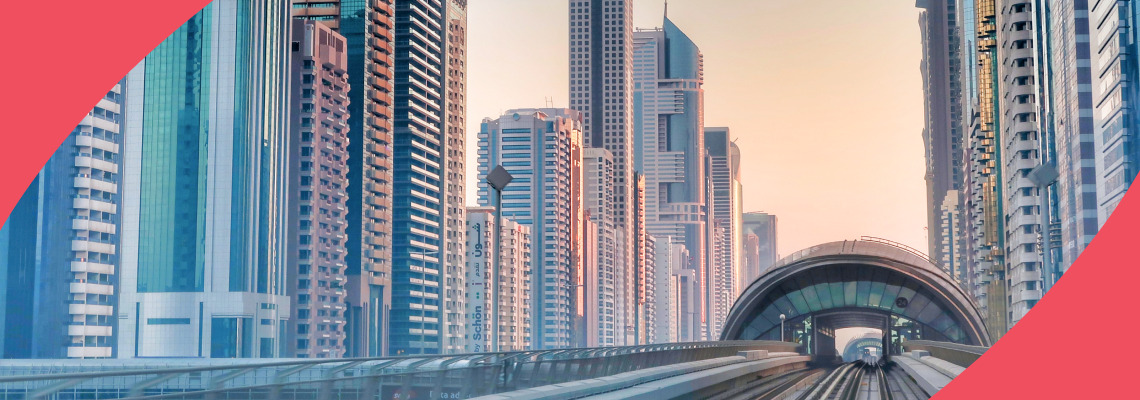Sustainability is a hot topic in the Middle East. There are many reasons for this, but perhaps the most important ones are city congestion and air pollution, which are caused by the increasing population and private car usage in the region.
Despite its importance, there are still significant challenges when shifting toward sustainable mobility. These include underdeveloped infrastructure; limited public transportation options; extensive use of private vehicles as status symbols rather than a means of transport only (the most common type being an SUV) - all points which must be addressed if we are going to shift from the current practices towards more sustainable ones.
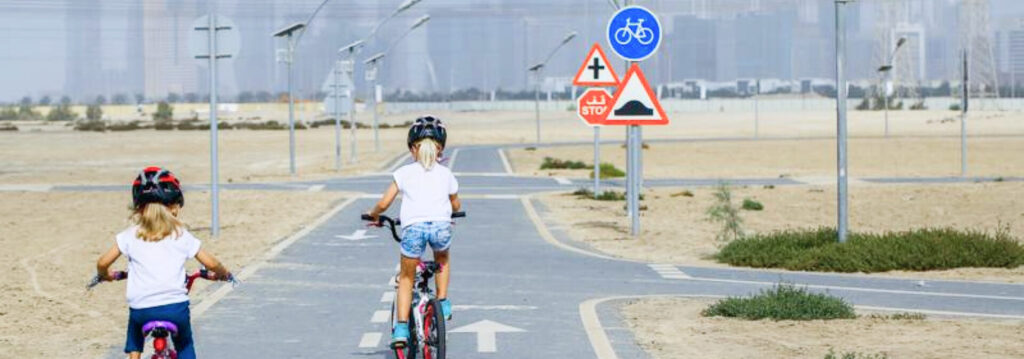
Fortunately, Middle Eastern governments and companies are looking to embrace sustainability for a greener future. Dubai has constructed several new cycling tracks across the city as part of its UAE 2060 Net Zero strategic initiative. As for Saudi Arabia, there is the NEOM project focusing on demand-shared mobility and high-speed transit. Investments are taking place across the country, especially in the upcoming metro lines of Riyadh’s city center. When we look at Qatar, they have an electric vehicle strategy and a promise to implement eco-friendly vehicles by 2030 for public transportation. The FIFA World Cup 2022 is the time to show the world its green mobility progress.
Have you heard of the "reverse traffic pyramid"?
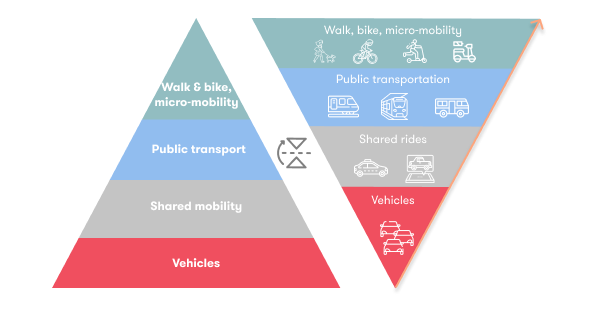
As you can see in the graph above, the reverse traffic pyramid places walking and cycling above other modes because of its wide-ranging health, economic, environmental, and cost benefits. This modal inspires a rethink of urban design and encourages a mobility model shift from private vehicles towards greener transport modes.
From awareness to action
The concept of sustainability isn't new, but many people still don't understand how they can apply it to their lives on a day-to-day basis.
Citizens may be aware that there is a greener way to get around, but they don't know why they should change or how they can benefit from it. It's important to educate people about the impact so that they can make greener mobility choices that align with their values and needs.
How can local government, public transport operators, and urban planners educate and encourage citizens to make greener mobility choices?
The first step to achieving sustainable habits is to change the way people think about their daily mobility choices. Do I really need to drive my car? Is there a faster and cheaper way to get around?
Getting insights on people's mobility patterns and suggesting them greener alternatives can positively change their thinking and mobility habits. With Sentiance's mobility insights, you can see your app users' transport modes while ensuring the highest level of data privacy.
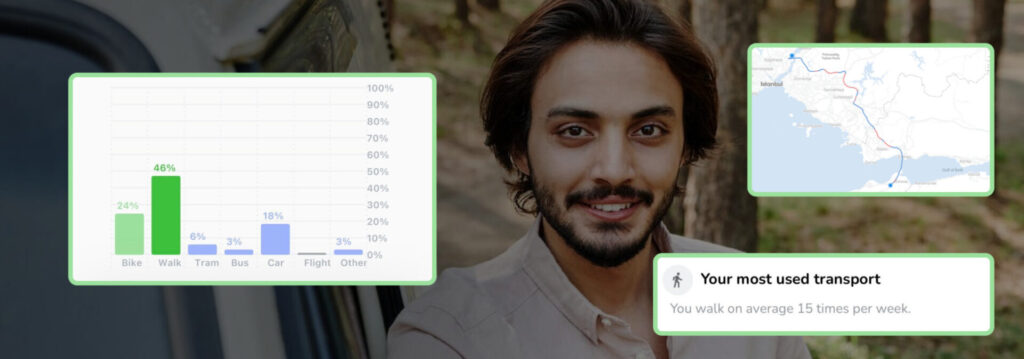
Based on these real-world insights, you can then send out personalized nudges to encourage people to make more sustainable choices at the perfect moment. At Sentiance, we've developed contextualized messaging based on behavioral science. This is an efficient and scalable technology to build awareness and promote greener mobility alternatives.
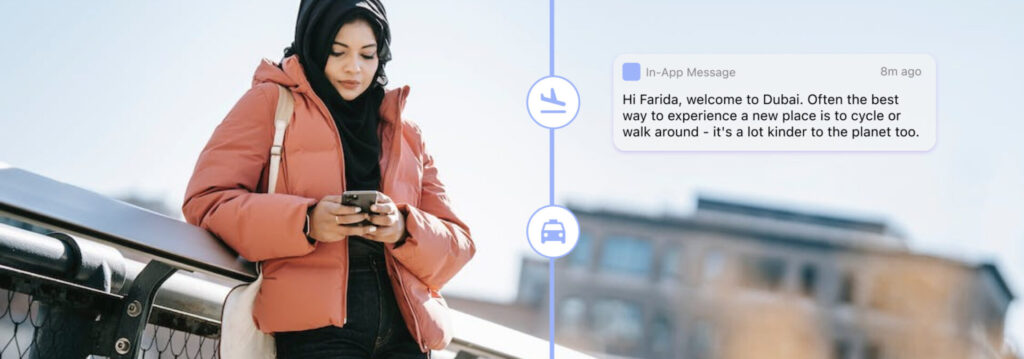
Beyond mobility, sustainability is actually connected with all aspects of people's everyday life. There is a possibility to educate and influence your app users to make greener choices throughout their day.
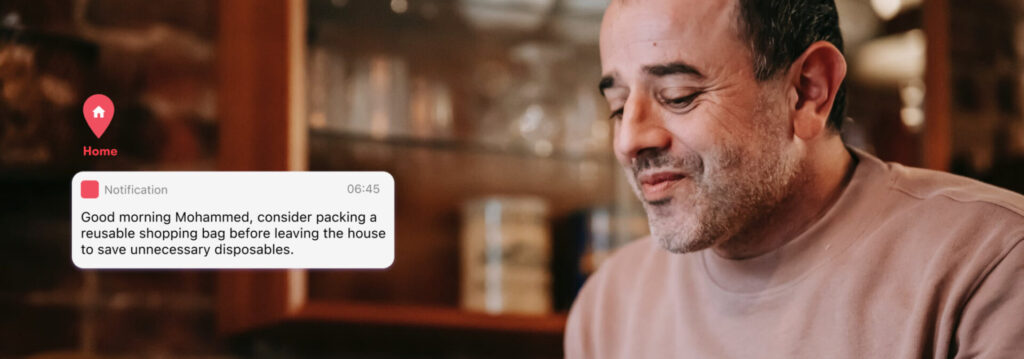
Takeaway
The Middle East is one of the fastest-growing regions in the world. Shifting towards sustainable mobility is essential for ensuring a healthy, livable, and safe environment for people in this region. Urban planners, public transport operators, governments, and citizens all need to work together for a more sustainable future.
Thanks to the advancement of mobile technology, you can uncover the power of mobility data to evaluate public transport efficiency and optimize city mobility systems. Furthermore, you can enhance users' sustainability awareness, and translate it into their everyday choices with personalized engagement features. All these can be done in your mobile app, with users' consent and privacy-first technology like edge computing.
Let's chat and see how you can achieve a sustainable future with our technology.
References:
Dubai to build new cycling paths in Barsha 1 and 2

